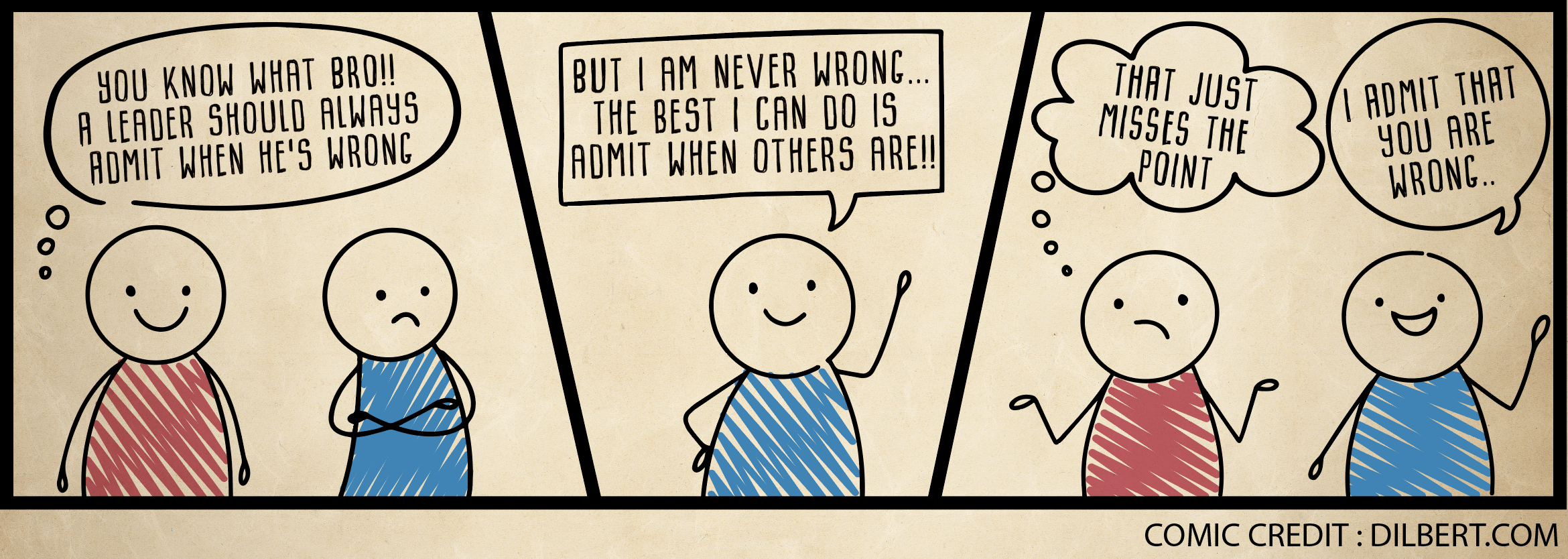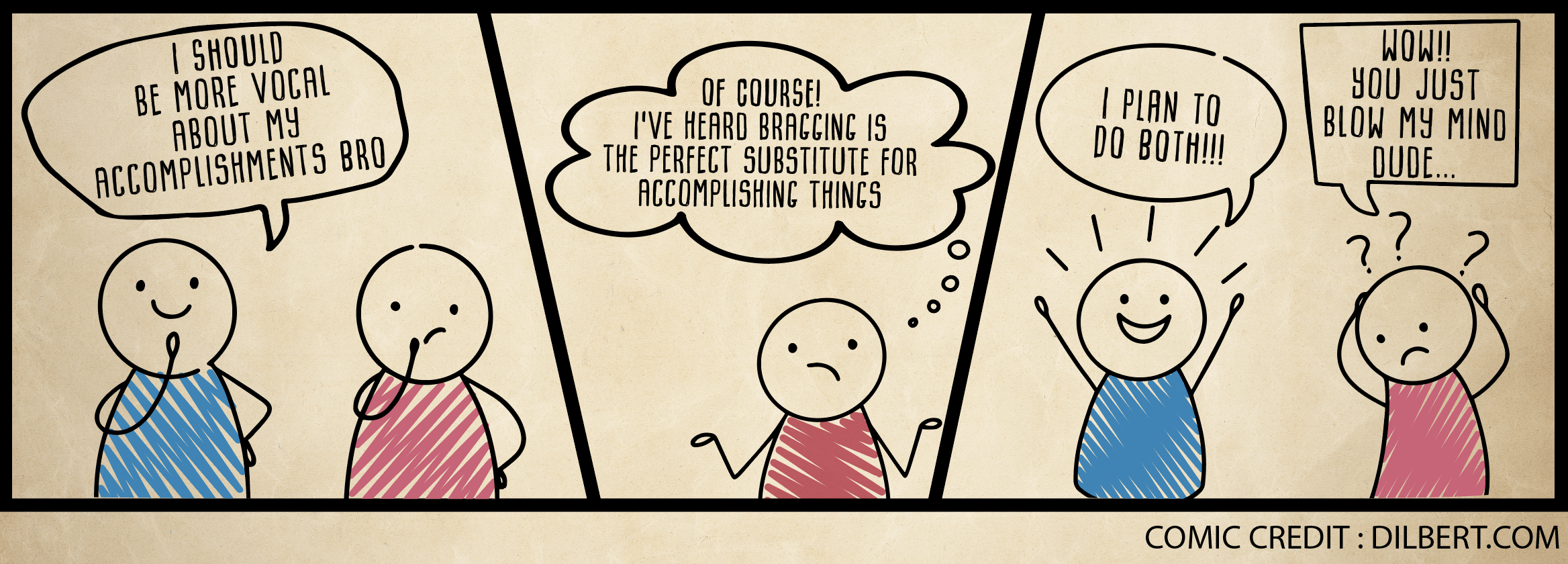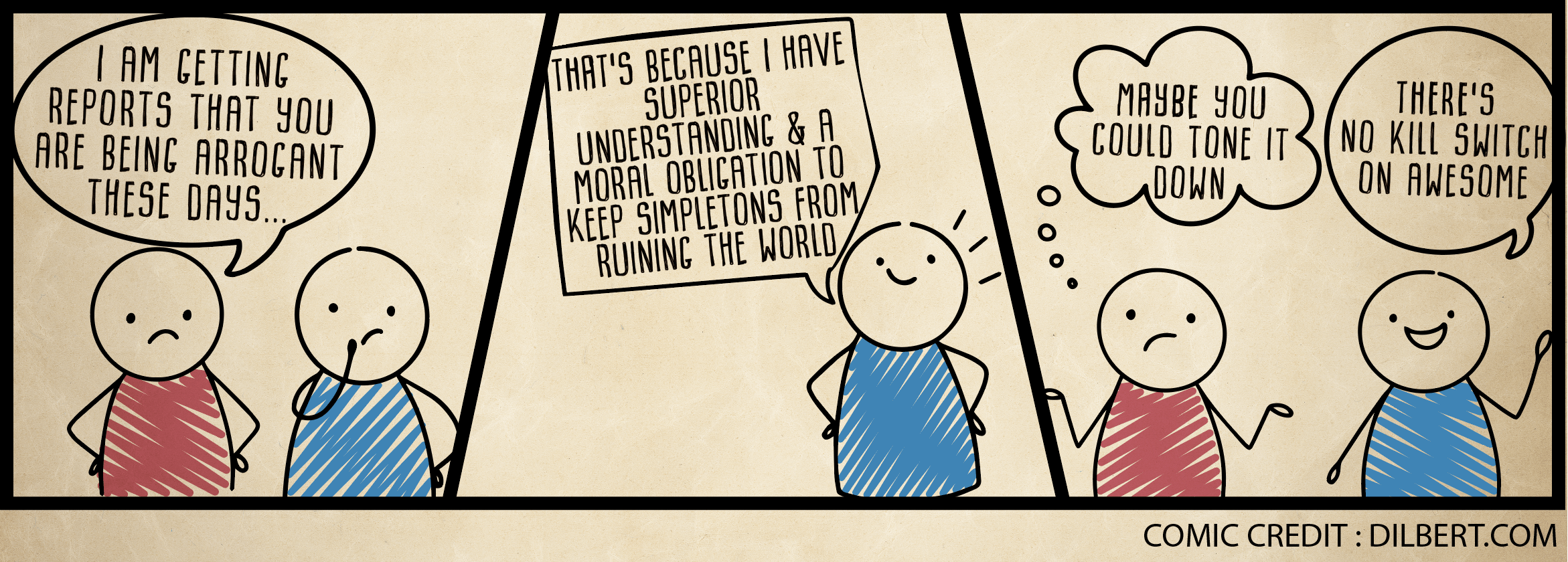My previous blog received a lot of comments from all our wonderful readers. One of them suggested that I should have used ‘Humility’ as one of the key elements of ‘Balance’. This set me thinking and the result is this blog.
In this article, I will talk about
What is Humility
The importance of Humility in Leadership
How Humility can be learned or Practiced
And some quick tips
Let’s start the discussion with,
What is Humility?
A simple definition of humility (‘vinamrata’) is; freedom from pride or arrogance. It is the quality or state of being humble.
While the dictionary definition may be easy to relate to or understand. The relevance of it in day to day life is far more difficult to follow and understand.
An old article I read had given me a great perspective on humility which I am sharing here;
“True humility, is when someone has an accurate assessment of both his strengths and weaknesses, and he sees all this in the context of the larger whole. He knows he isn’t the center of the universe. And he’s both grounded and liberated by this knowledge. Recognising his abilities, he seeks to contribute. Recognising his flaws, he wants to grow.”
Unfortunately, humility isn’t a trait/quality that is often associated with leadership.
Visionary
Courageous
Charismatic . .
are some of the words that come to our minds when we think of great business leaders such as Steve jobs, Jeff Bezos, Elon Musk or Bill Gates . . but Humility is not one of them.
However, A number of research studies have outlined the benefits of humility in leaders. Humble leaders listen more effectively, inspire great teamwork and focus everyone (including themselves) on organisational goals better than leaders who don’t score high on humility.

Humility is not discussed as often as some other character traits in leadership literature but it underlies many of the most valuable leadership skills. Driven by the desire to learn and grow, humble leaders tend to be solution-oriented, open-minded, and fair. The humble leader is a mentor, a manager who isn’t afraid to relinquish control or admit their mistakes.
We have all either experienced or heard stories of egocentric, arrogant leaders who have soured company culture and driven valuable employees to underperform or leave.
And you may recall that, in his seminal book Good to Great, Jim Collins found two common traits of great CEOs: humility and an indomitable will to advance the cause of the organisation.
The importance of Humility in Leadership
Humble leaders understand that they are not the smartest person in every room. Nor do they need to be. They encourage people to speak up, respect differences of opinion and champion the best ideas, regardless of whether they originate from a top executive or a production-line employee.

I feel that humility gets a bad reputation because it is sometimes linked with subservience or weakness or introversion. Whereas, in reality it’s the exact opposite; humility is closely associated with highly positive qualities such as sincerity, modesty, fairness, truthfulness, unpretentiousness and authenticity.
And there’s nothing about humility that makes it incompatible with strength and courage.
It takes strength of character to set aside your ego and admit when you've made a mistake and strength of will to ask for help when needed.
Nor does humility mean lack of confidence. It takes confidence to share credit with their team members.
Some leaders are loud while others are quiet and introverted. Some are intuitive geniuses and others are total pragmatists. But regardless of their approach, at the end of the day, leaders must inspire trust, cooperation and commitment among the workforce.
Humility is an imperative attribute for five reasons, it makes a leader more;
- Endearing. Admitting that you don't know everything endears you to employees and shows you are willing to grow and acquire new skills and knowledge.
- Approachable. Peers and team members find it easier to approach someone when they know they won't be met with arrogance. Not being approachable can rob leaders of potentially great ideas or suggestions.
- Inspiring. A leader who is willing to give team members credit and work side-by-side with them to reach common goals inspires others to do the same.

- Empathetic. Leaders who understand the suffering associated with failure can better understand when team members make mistakes. The team naturally becomes willing to push harder and strive for greater things when they know mistakes will be forgiven.
- Influential. Influence yields great power. When team members believe you reflect the trait of humility, they are more willing to trust and follow you. In fact, studies have found an inverse relationship between how leaders and employees view the leader's abilities, with leaders who underrated their abilities often being rated more effective by their teams.
The bigger the leader becomes, the more humble he should be; after all when a tree is laden with fruit, it bends down, so that others find it easier to pluck those fruits. Unfortunately the larger your leadership role becomes, the more difficult it is to be authentically humble.
As you experience success after success, arrogance tends to replace self-confidence. When this happens, good leaders must have someone they trust to tell them they are becoming too arrogant to be influential. Once a leader loses his or her influence, it is extremely hard to guide a team or facilitate change.
How Humility can be learned or Practiced
For some, humility comes naturally. But for those who weren’t blessed with the ability to be humble, it is a learnable skill, albeit a difficult one. It may be called a ‘marked absence of the vices of pride’, like smugness, arrogance, vanity, envy, and domination (among others). Hence by consciously working towards eliminating these vices, we can become humble in many aspects of self.
This is very similar to how in Ancient India, we had the practice of consciously working towards removing our six vices; In Hindu theology, Shadripu/Shada Ripu are the six enemies of the mind, which are: kama (desire), krodha (anger), lobha (greed), Mada (arrogance), moha (delusion), and matsarya (jealousy); the negative characteristics of which prevent man from attaining moksha or enlightenment.
If a person is virtually a prisoner of Shadripu’s (six internal enemies), then his life is completely governed by destiny. As a person moves ahead on the path of Self-Realization, the grip of destiny over him loosens and he gets more and more leverage to change his destiny. When a person identifies himself with the Self or atma (spirit), then he becomes part of the power of destiny. Merely his power of Sankalpa (resolve) is good enough to materialize and change any situation either for good or bad according to his Sankalpa (will-power/resolve).
Similarly, through our resolve/will-power, if we consciously work towards removing these ‘vices of pride’, it is possible to learn how to be humble.
It’s not hypocrisy or ‘fake humility’ if there is an honest introspection to see ‘why did I just say that?’ Or ‘why did I do that?’ It is this honesty to self and a genuine desire to change that can make these artificial qualities that we are superimposing on ourselves - real. It is not just intent but when backed by practice, these artificialities start becoming real virtues.

Hold Yourself Accountable to eliminate smugness
There’s nothing worse than a leader who avoids or shifts the blame to preserve their own image. The most important tenet of being humble is owning up to your mistakes. Accountability in the workplace leads to improved performance. It creates an environment of acceptance and inspires critical thinking: it’s okay to make mistakes as long as we can address them, identify solutions, and move forward as a team.
Listen, Like, Really Listen to eliminate Arrogance
There’s a difference between listening and listening to talk. Real listening is driven by curiosity, and it goes hand in hand with humility. Humble leaders know that every conversation is a dialogue; an exchange of ideas that offers a chance to learn something new.
Learn to Take a Joke (or Criticism) to eliminate Vanity
Everyone knows that when you’re in a leadership position, there will be criticism, and there will be jokes - and you’re going to have to learn how to deal with the two. Humble people see criticism as a valuable opportunity to improve their skills or address their wrongdoings. They also know how to take a joke and differentiate between actionable criticism and jokes.
Be Selfless to eliminate Envy
Humility breeds selflessness. This is because humble people know their self-worth. They admire and support others - envy is not an emotion they feel. They are secure, and are able to put others needs in front of their own. Humility and selflessness indicate emotional intelligence; it’s good to take the time to understand others, their needs, and what can be done to help them.
Pass the Baton to eliminate Domination
Leaders who lack humility tend to be micro-managers. They’re so focused on ensuring everything is done their way that they lose sight of the goal, and for that, the whole team suffers. In fact, there’s scientific proof that micro-managing negatively affects teams performance and compels its members to leave. Humble leaders work hard to promote autonomy. More importantly, they’re confident in their team’s skills and are always open to new ideas.
Learning to be humble is not a walk in the park. It takes a great deal of self-reflection and emotional fortitude to better yourself as a person. Rest assured, though, the rewards are significant. It may not be an easy fight, but it’s definitely a worthy one.
And now,
A few quick tips
- Be a constant learner. It is almost impossible to be egocentric when you remain fully aware of how much you don't know.
- Watch your pronouns. Avoid first-person pronouns like “I”, “me,” “my,” and “mine” when talking with your team or others about your team's work. It shows immaturity as a leader. Better to develop the habit of using third-person pronouns such as “we,” “our,” and “us” instead.
- Look for ways to give credit. Your team will be willing to go the extra mile if they know you will acknowledge their hard work. Giving credit to others, even when you have done much of the work, motivates employees.
A good description of this process, can be summed up by the saying “Humility is not thinking less of yourself, it is thinking of yourself less.”
Humility is about minimizing the self and maximizing the bigger purpose you represent. When you think about humility in that way, it becomes a vital competency in leadership because it takes the focus from the 'I' to 'We.' Leaders with humility engage us and give us a sense of identity and purpose.
True humility also requires courage and trust that stem from the leaders' confidence in themselves and their abilities. There's a balance a leader has to strike between confidence and humility. Confidence is not about swagger but about the ability to project presence in the room, coordinate other people's actions, and help others take action.
In Conclusion,

Leaders that demonstrate humility hold people accountable, have tough conversations, and make difficult choices. They role-model, seeking the bigger purpose above the self-seeking approach. Those are the kinds of leaders that people will jump off a cliff for. Look at Gandhi, Abraham Lincoln or even Martin Luther King and see how this one quality gave them the ability to move millions.
What do you think? Please do share your thoughts on the same in the comments section below.
RELATED TOPICS:#Apparel,Anindya Ray
Leave a comment
Our email address will not be published. Required fields are marked *







45 Comments
Click this linkFeb 28, 2023 at 15:48 pm
Wooden furnishings has one thing really organic concerning it. There is this feeling of warmth, of attribute as well as of luxury that could be be located in hardwood furnishings. Hardwood is actually born from the earth. It feeds the fire, degenerates in to blows and also ashes away. It is actually extremely close to the human presence in the world. May be that is why it sounds a great deal along with us. Might be that is actually why you still obtain that cozy feeling when you contact a rich mahogany workdesk.
YspSep 28, 2022 at 00:32 am
Havve yoou eveer thought about publshing ann ehook oor guest authorng oon other sites? I hazve a bkog based upn on the sam topics yoou discuss andd would really like to have you share some stories/information. I know mmy subscribeers would value your work. If yoou aree eve remotely interested, feel free tto shoot mee an email.
Utg44eSep 09, 2022 at 03:36 am
j4n5x e2t7d6 eeijqyk kcslk8 y33kp lwsijc ybxa49 fp4lxm
Ivs0uqSep 09, 2022 at 02:31 am
0zxh0t aleo32 e7nwd 1xgkj9 3vswa9 7wu7fh t8fpa 3qqbxl
Pradyoth VarmaApr 08, 2022 at 18:57 pm
Excellent Article , Anindya. This aspect in a leader by far is the hardest to practise as it is the most difficult to accept by the leader in the first place. Ego is so big that accepting Humility as a virtue itself is difficult. I feel the spiritual angle which you brought is was excellent as it is only in Indian culture where since ages and since our childhood too the stress has been on humility but in these modern world where people look up to the west for leadership inspiration and are following that culture more, the word humility is not there in that culture and slowly creeping in our city lives especially in nuclear families and that makes it more difficult to imbibe. Enjoyed the article thoroughly. Very well researched and crisply put across. It is a fantastic guide for great leadership.
RayanindyablogsApr 08, 2022 at 20:22 pm
Thanks Pradyoth
ShashidharApr 07, 2022 at 12:05 pm
Wonderful article - was definitely a catalyst for some introspection!!! To add: These days, the words 'image', 'perception', 'narrative' are being increasingly used in an increasingly relative-world. However, real strength of character comes from traits that are more absolute in nature. Funny thing is that many humble people (Lal Bahadur Shastri comes to mind) are not even aware/conscious of their humility. As opposed to the fake humility of a businessman/politician - just too many examples :-)
RayanindyablogsApr 07, 2022 at 18:07 pm
Thanks for your insights
NeerajApr 06, 2022 at 02:30 am
Humility is considered to be one of the highest forms of virtue…The saying “Pride comes before fall” cannot be taken for granted. This article is by far my favorite Anindya, in my opinion I think growth is inevitable… most people want to grow into becoming leaders, revolutionaries, visionaries, trendsetters, trailblazers etc… we all grow into becoming something…this really got me thinking, the fact that we all should start from bottom up and not the other way round is life’s most humblest forms of expression. Not many get this right though ! What I meant is life cannot get more humbler than that…. I learn a lot from nature & I thought this example would be adapt to use here…A tree that stands tall and strong, also had rooted its foundation into the ground many years ago, the journey started from the very base level, everyday it only grew taller, bigger, stronger and flourished into bearing fruitfulness. This tree wasn’t intimidated with its surrounding or environment, instead used all the available resources around, for its growth. As a result in its prime it offered, food, shelter, fresh air, even treated ailments and what not ? Being humble is to be able to value yourself in a way that isn't dependent on outperforming other people but being the best version of your own self or one of the best, at things you do. It’s proven that people with with high level of humility are able to handle stress more effectively, I believe they even have a higher level of physical and mental well-being. Humility equals to greater generosity, helpfulness, and gratitude—all things that can only serve to draw us closer to others. Thank you so much for this lovely read, it tickled my brains to reflect deeper on this topic !!
RayanindyablogsApr 06, 2022 at 20:40 pm
Wow! Wonderfully articulated Neeraj. Will quote from this in my final article from this season.
RameshApr 05, 2022 at 11:42 am
It's wonderfully written Anindya. Simplistically " Don't do things to others, which you don't want others to do it to you". This article interestingly deals with all such character traits. Humility is basic character helps people effortlessly navigate life and not only in their leadership roles.
RayanindyablogsApr 06, 2022 at 20:38 pm
Thanks Ramesh
Akhil KhannaApr 04, 2022 at 07:56 am
Very well written article. Humility noun the definition the feeling or attitude that you have no special importance that makes you better than others; lack of pride: Grandma was a religious woman of deep humility. Does this help a leadership when you have reverence. Don’t know but I doubt it. Humility is broadly defined as 1) self-awareness, 2) appreciating others' strengths and contribution, and 3) openness to new ideas and feedback regarding one's performance. Leaders who are humble have a better grasp on organizational needs and make better informed decisions about task performance. One enduring feature of a leader with humility is the one who leads people and acknowledges there contributions and gives them the confidence to perform with a single instruction your failures are mine and your success are yours, do your best and before you show me your success be faster to share your failures. Failure root case and genuine understanding of the same is where solutions are found. This way the employee feels empowered and the leader harness the true potential of the organisation. Leadership is with exception and failure are exception and not the norm. Humility in leadership is taking responsibility for failure of the team celebrating it and fixing the root cause. Failure is where the learning happens and leadership with humanity is leading your team Where learning is constantly happening with failures. with a single instruction the humility in a leadership is seen when a leader declares to his team No one fails in this organisation all your failures are mine and since they are mine I will be upset if I am not the first to know about it. All success are yours and you can share it at will so that we can celebrate it. On my watch everyone sleeps knowing that I know about your failures and have acknowledged them as mine.
RayanindyablogsApr 04, 2022 at 22:49 pm
Wow! Lovely articulation Akhil. Thanks, will definitely use this in my closing blog of the series . . Thanks again
Karan BajajApr 03, 2022 at 19:07 pm
I would also like to add. Sometimes we create our own bubble called "over achievement" which only puts the self in perspective. Talking about it and nurturing over achievement is the problem maker though ppl may have humble beginnings/troubled starts and sudden peaked careers to become successful. Sometimes it is important to fail, and accepting failure, restarting, making an effort to unlearn and re learn is what makes humble people.
Karan BajajApr 03, 2022 at 18:53 pm
Great article and very interesting read. Loved all correlations. Some times calling a spade a spade is mistaken as "arrogance". It is important to empower responsibly and Humility comes in when there is no fear of competition and no insecurities in our minds. Keeping the "goal" and "objective" in mind rather than self. Hunger to learn and admit to not knowing something about a subject is extremely rare. There are many correlations I loved about this article. Looking fwd to reading the next one.
RayanindyablogsApr 03, 2022 at 20:52 pm
Thanks Karan
Suman SahaApr 03, 2022 at 18:18 pm
Very well written. Forces one to think about the "Hero" Archetype of leadership that we commonly adhere to. Also brings home the point that one needs to be a good follower first before being a good leader. As leadership is very situational and the willingness to be led sometimes separated the great leaders from mere tittle holders.
RayanindyablogsApr 03, 2022 at 20:51 pm
Thanks Suman. So very well said . . will use this note from you in my closing blog for the series. Thanks again.
Govind ShrikhandeApr 03, 2022 at 14:56 pm
In a world that is obsessed with 5 Star show offs and People with Dual faces - Humility stands out like a lake in a desert. There are times when I am amazed , at the kind of Power and following the so called Stars have . Their main competency is the power of their Projection of their basically ordinary work. So much like the Villains of the Ayn Rand Novels. and they promote ordinariness by being part of a herd and a group. Promoters and shareholders are mistaken that , stars will always be show offs. Hence they tend to think that the humble person will not be strong and visionary. How mistaken they are !!! Thanks Anindya for throwing light on the Humble leaders who patiently and courageously navigate their teams and their company towards the peak..
RayanindyablogsApr 03, 2022 at 14:59 pm
Thank you so much sir, for the inspiration to write this article. And for also being an example for all of us on leadership with humility. Thanks again,
VijeyApr 03, 2022 at 11:52 am
Style and sense of sharing information is just stunning and the article is so very informative as like other particle of yours sir. There are a lot of take always that can be applied on professional and personal front. Freedom from pride and arrogance is not a easier one to practice. But to be a true leader one has to have a freedom from pride and arrogance. Well said and thanks for sharing. Vijey.
RayanindyablogsApr 03, 2022 at 15:00 pm
Thanks Vijey
Bharat KulkarniApr 03, 2022 at 11:41 am
Very interesting read. Opens up eyes on what leadership needs. The reason why we rate leaders like Ratan tata above others is his humility. Humility is such a powerful virtue to posses but a equally difficult one to practice for many. Sometimes humility becomes inversly proportional to success, where as it should be directly proportional. Really a powerful article!
RayanindyablogsApr 03, 2022 at 15:01 pm
Thanks Bharat
Raja ChidambaramApr 03, 2022 at 08:01 am
Dear Anindya, Wonderfully meaningful topic to talk about in our current context. Let us look at Putin as a leader. Look at how much arrogance he oozes and hence how much suffering he has caused and how much more he may cause. Also we had Trump of the same breed. Yesterday in a dialogue with few friends, one of them said something simply beautiful 'Surrender leads to freedom. You are comfortable in surrendering to the moment because you are confident and courageous". So I believe arrogance is an outwardly projection of 'Low self-esteem and under-confidence'. Humility comes from heightened self-awareness, acceptance of oneself, acceptance of others, acceptance of the moment and acceptance of the fact we are vulnerable and helpless beings (What power did we have in from a small virus during Covid). But surely RARE in corporate world compared to even political world. But even there we had examples Ratan Tata! I loved the way you are bringing the ancient wisdom available in this land. I just want to share something I have heard so many times in my school days: Ravana and his people vanished because of his AHAMKARA! Duryodhana and his race was annihilated because of 'MAMAKARA'. Both forms of Pride and arrogance! Thanks, Wonderful read to start my week!
RayanindyablogsApr 03, 2022 at 09:19 am
Thanks for articulating it so well Raja . . Will definitely use this in my series wrap-up article.
Madhumita RayApr 02, 2022 at 22:45 pm
Very good article. Very informative, learned many things from this.
RayanindyablogsApr 03, 2022 at 08:06 am
Thanks Madhumita
Bhargavi TaunkApr 02, 2022 at 18:47 pm
The most common myth is that humility and weakness are synonyms....thank you for busting that myth ....infact humility is only for the strong and the one who knows the self-worth....not for the weak and insecure who doesn't believe in oneself. Beautifully written Sir.
RayanindyablogsApr 03, 2022 at 08:06 am
Thanks Bhargavi
Sanjay LalApr 02, 2022 at 13:14 pm
Humility is colossal power which is acquired if one distances oneself from having supremacy over others. The adamant desire in us to have control on others hampers the ability to organize, focus, and implement our own actions. The illusion that we already know everything is the hindrance which crop up due to lack of humility and stop one from excelling to higher levels of enlightenment. And for sure one cannot be a true leader. I would call HUMILITY in sourcing to be the greatest degree. Without it sourcing will never succeed.
RayanindyablogsApr 02, 2022 at 13:29 pm
Thanks Sanjay, for sharing this lovely perspective
Mark SathiabalanApr 02, 2022 at 10:00 am
Very difficult trait to master. Well written Anindya and good advice for people to develop humility in their character.
RayanindyablogsApr 02, 2022 at 10:06 am
Thanks Mark, equally important in life as in leadership
NagendrasrinivasaApr 02, 2022 at 09:59 am
Wisdom from a leader who practice
RayanindyablogsApr 02, 2022 at 10:06 am
Thanks Nagendra
GunishApr 02, 2022 at 09:41 am
Well Written Anindya. Humble people also tend to experiment more - very often I have seen people not doing things for "fear of failure" and what others will say. Being humble unburdens oneself and lets you try things without fearing the emotional trauma of having failed. I really liked the part of "awareness". I recall you and I discussed about awareness and I could relate that conversation with this article!
RayanindyablogsApr 02, 2022 at 10:05 am
Thanks Gunish, lovely observations . . will definitely use it in the future . .
Abir BasuApr 02, 2022 at 08:05 am
The fallout where leaders indulge in micro management..gives them a sense of importance and dominance..in effect they are creating a week structure,where delegation does not exist,and such a structure will inevitably fall short of delivering any resemblance of consistent output.
RayanindyablogsApr 02, 2022 at 09:41 am
Thanks Abir, good point
Ketan shahApr 02, 2022 at 07:37 am
Anindya really a good article more relevance to today's younger top managers who achieve top position by their efforts and performances but become more arrogant and more unfriendly towards teams and also to their immediate family it leads to imbalance in their career and personal life
RayanindyablogsApr 02, 2022 at 09:41 am
Thanks Ketan bhai . . well noted . .
Brajesh Chandra PandeyApr 01, 2022 at 22:29 pm
Nicely explained this fact
RayanindyablogsApr 02, 2022 at 09:40 am
Thanks Pandey ji